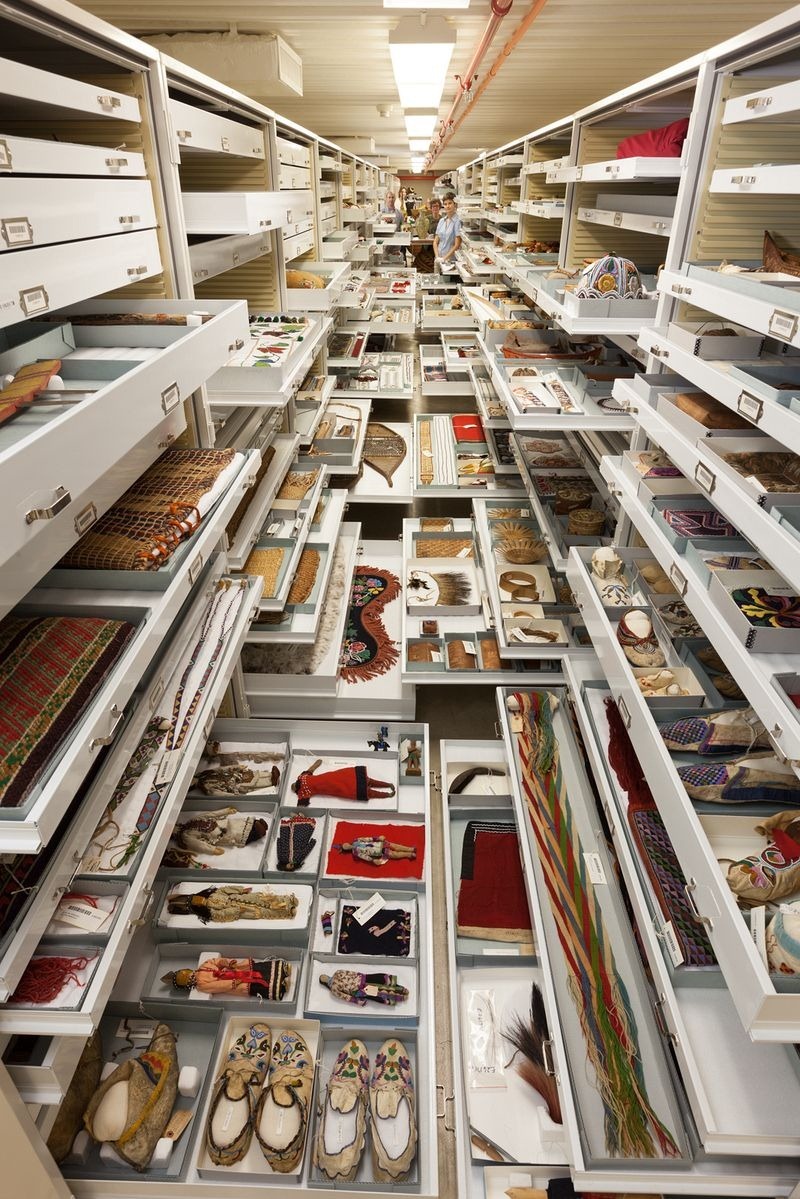The National Museum of Natural History in Washington, D.C., United States, the largest of all museums of the Smithsonian Institution, is home to over 126 million specimens of plants, animals, fossils, minerals, rocks, and other artifacts, that represents over 90% of the Institution's collections. As with all museums, a disproportionately large percentage of the collection is stored behind the walls, with only a small number of items put on public display. These items are not sitting in some dark basement and gathering dust, but meticulously organized, labeled, catalogued, and preserved.
“These collections serve as primary reference materials for exploring and understanding the solid Earth and planet, biological and cultural diversity, evolutionary relationships, biological conservation, and global change. They help us to interpret our biological origins, our cultural heritage, and what the future may hold,” the museum wrote on their website.
These pictures, shared by the museum, provides us a peek into this fascinating collection.
Feather identification expert Roxie Laybourne, amidst a portion of NMNH's bird collection. Photo credit: Chip Clark

Anthropology. Photo credit: Chip Clark
Entomology. Photo credit: Chip Clark
Invertebrate Zoology. Photo credit: Chip Clark
Mineral Sciences. Photo credit: Chip Clark
Botany. Photo credit: Chip Clark
Botany – Algae. Photo credit: Chip Clark
Fishes. Photo credit: Chip Clark
Mammals. Photo credit: Chip Clark
Paleobiology. Photo credit: Chip Clark
Mammals – whales. Photo credit: Chip Clark
Anthropology. Photo credit: Chip Clark
via Messy Nessy Chic
























Comments
Post a Comment